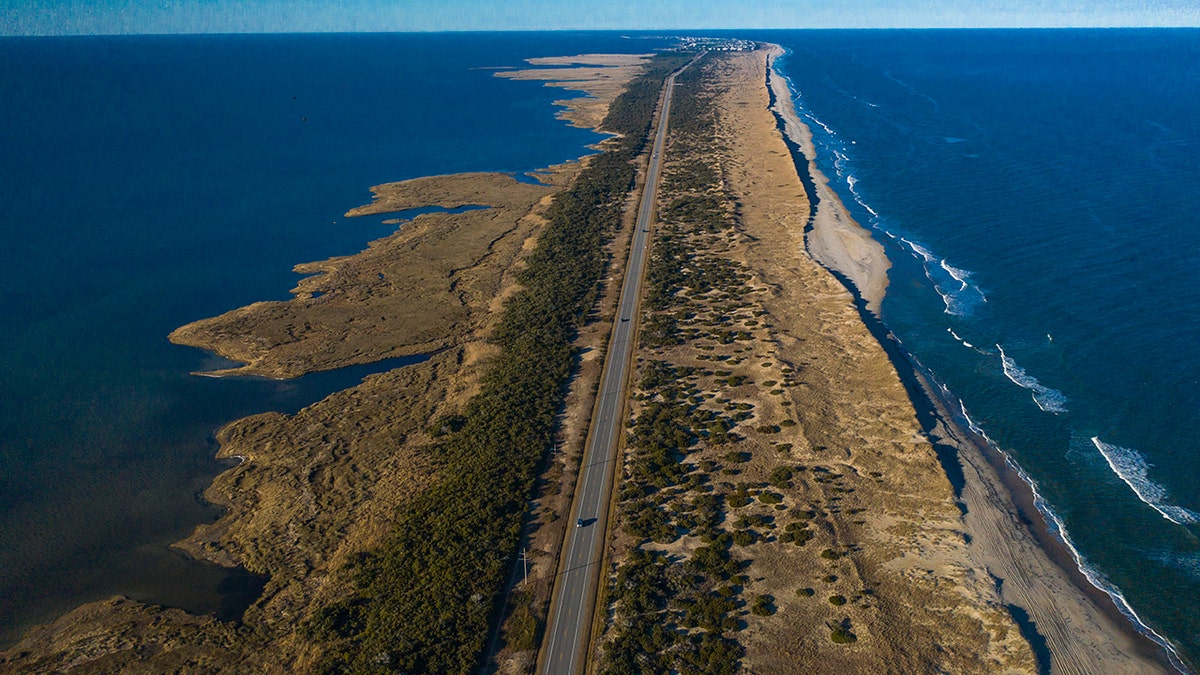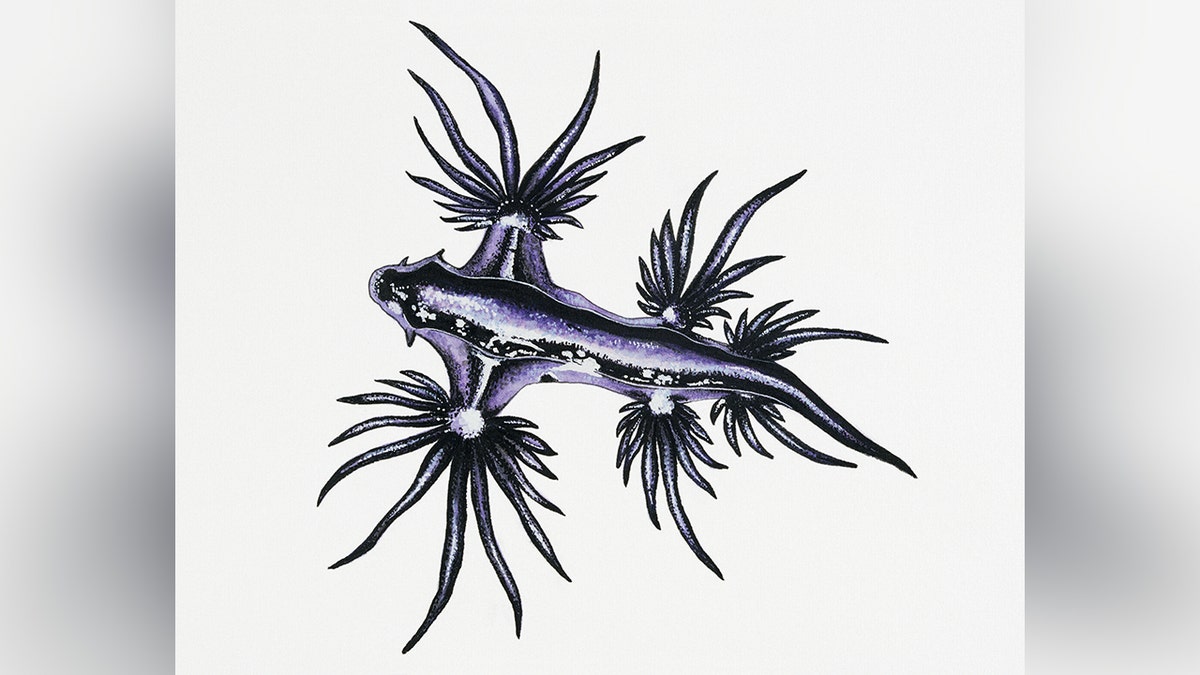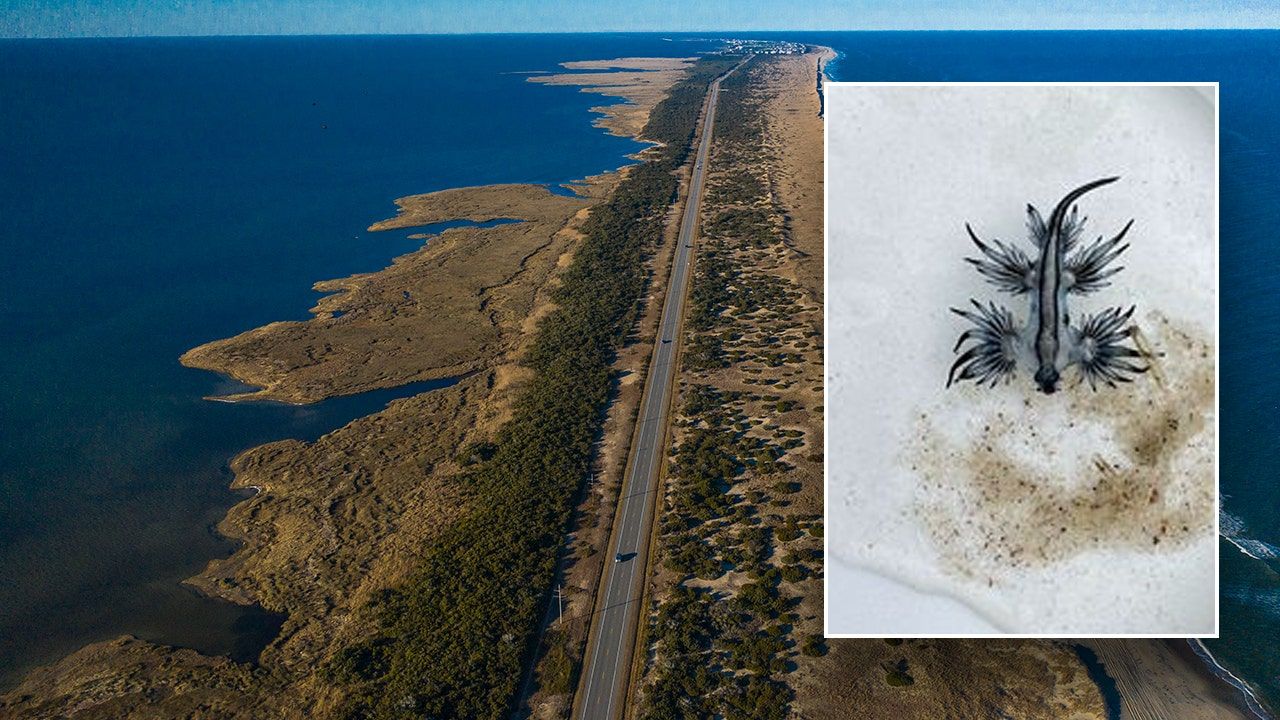Venomous creatures have been spotted on beaches in North Carolina's Outer Banks, and the National Park Service has issued a warning about the power of these slugs.
Cape Hatteras National Seashore posted on Facebook that blue sea dragons (Glaucus atlanticus) have been sighted on the beaches.
“This venomous sea slug lives in the open ocean and occasionally gets stranded on land due to high winds,” National Seashore officials posted on Facebook. “They may only grow to about an inch long, but don't let their size fool you. They pack a punch!”
According to Oceana.org, blue sea dragons have other names, such as sea swallow or blue angel, and can grow up to about 1.3 inches.
12 OF THE CREEPIEST CREATURES IN THE OCEAN THAT WILL SURELY GIVE YOU THE SHIVERS
Blue sea dragons are arriving on beaches along the Outer Banks, including Cape Hatteras National Seashore in North Carolina. (Cape Hatteras National Seashore Facebook post)
They are often found in the Atlantic, Pacific and Indian Oceans, in tropical and subtropical waters.
The specimen is considered a sea slug and spends most of its life floating upside down on the surface and staying afloat by storing air bubbles in its stomach, the organization wrote.
12-YEAR-OLD MONTANTA BOY SURPRISED AFTER CATCHING RECORD-BREAKING FISH: “I CAN'T BELIEVE IT”

Aerial drone view of Outer Banks Highway 12 with the Atlantic Ocean and Sound on both sides, Cape Hatteras National Seashore. (Photo: Visions of America/Joseph Sohm/UCG/Universal Images Group via Getty Images)
Cape Hatteras National Seashore officials say blue sea dragons ride ocean currents feeding on their favorite food: Portuguese man-of-war.
“Because their meal consists of such a venomous creature, they are able to store that venom for their own defense,” the park service wrote. “They concentrate the ingested venom and produce a bite that is even more powerful. What a ferocious bite for such a small dragon!”
OUTER BANK HOUSE OF NORTH CAROLINA COLLAPSES INTO OCEAN

Blue dragon or floating sea slug (Glaucus atlanticus), Glaucidae. Illustration by Brigette James. (Photo by DeAgostini/Getty Images)
Since these tiny slugs carry such a strong toxin, park officials advise anyone who comes across one of these blue beauties to admire it from a safe distance and be wary of other people nearby.
CLICK HERE TO GET THE FOX NEWS APP
“Blue sea dragons can travel in groups known as 'blue fleets,'” the post said. “If discovered, dead or alive, they are still venomous. Enjoy this fascinating organism without touching it.”












